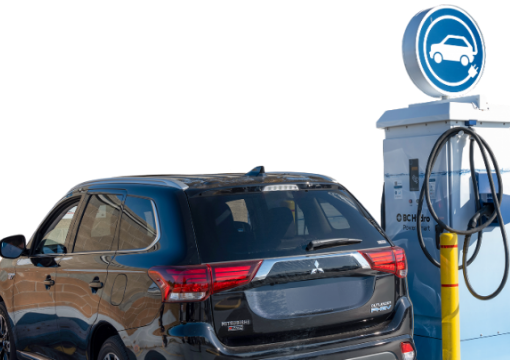Electric vehicle adoption in B.C. and Canada could be merging from the fast lane to the slow lane, as EV drivers face a number of limitations, from cold weather range anxiety to spotty fast charging infrastructure, according to a new survey by the Canadian Automobile Association (CAA).
And small fleet operators are facing cost challenges in converting trucks and vans to electric, according to the Pembina Institute.
There were roughly 150,000 electric vehicles on the road in B.C. as of January 2024, according to BC Hydro.
A new survey by the CAA and the BC Automobile Association (BCAA) of 5,100 EV owners in B.C. found EV passenger vehicle owners are thrilled with the lower cost of fueling and maintaining EVs compared to internal combustion engine (ICE) cars and trucks.
But come wintertime, their cars come down with a case of cold weather-induced seasonal affective disorder.
While 97 per cent of those surveyed said the cost of fueling EVs is better than ICE vehicles, 70 per cent were unhappy with the lack of fast-charging stations. This may become more pronounced in the winter, when range anxiety increases.
Electric vehicles can have decreased performance in the winter, due to the effects of cold weather on lithium-ion batteries. Cold temperatures make lithium-ion batteries sluggish and slower to charge and discharge. And since the batteries also supply heat to the car, there is significantly more drain on EV batteries in cold weather, which can dramatically decrease their range.
Sixty per cent of the EV drivers surveyed said lower battery range in cold weather is a problem and, correspondingly, 60 per cent also said they would prefer to take ICE vehicles for longer trips in cold weather.
“Our survey shows that people are happy with their EV because they are cheaper to operate and easier to maintain than their previous gas-powered vehicles,” BCAA spokesperson Shawn Pettipas said in a news release. “But it also shows there’s room for improvement when it comes to accessing public fast chargers and increasing confidence with battery range in the cold.”
Meanwhile, small fleet operators in Canada are facing cost challenges in converting buses, van and trucks to battery electric, says the Pembina Institute.
“While electric vehicles now make up one in six new vehicle registrations, the shift to electric vans, trucks and buses is falling behind, with just two per cent of these vehicles sold in Canada by the end of 2023,” the Pembina Institute says. “For small fleet owners, unique financial and operational hurdles make the transition to electric particularly challenging.”
After surveying small fleet operators across Canada, Pembina concluded that two main barriers to adoption remain: “limited awareness due to a lack of information about the benefits of electric vehicles and concerns over whether electric models can meet the rigorous demands of commercial use.”
In response, Pembina has published a guide for small fleet operators.




